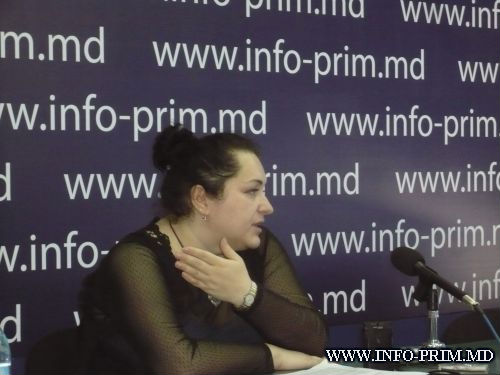
Removing economic courts and transferring their functions to other courts won’t help to prevent and fight corruption to the extent expected by the initiative's author. This is one of the conclusions of an expert report examining a bill that proposed the abolition of specialized courts, including those specializing on economic litigations, Info-Prim Neo reports.
The study was developed and published by the Center of Analysis and Prevention of Corruption (CAPC). Galina Bostan, CAPC director, explained during a press conference on Tuesday, that the object of corruption wasn’t the court itself, as a specialized institution, but the people working there. Thus, transferring the functions of specialized judges to ordinary courts wouldn’t solve the problem in itself.
The author of the legislative initiative invoked the high level of corruption in economic courts, expensive cases lost at the ECHR because of economic judges’ rulings, the difficulties encountered by companies located outside of Chisinau in bringing claims before economic courts which are located in the capital. However, experts say these arguments aren’t solid enough. “These arguments are not supported by any evidence that the cost of cases lost at ECHR because of economic courts is higher than that of cases lost because of ordinary courts. Then, there are no figures documenting the alleged great number of economic judges responsible for Moldova being penalized by the ECHR”, Galina Bostan said.
Experts added that even the costs of implementing the stipulations of the bill were not estimated. The CAPC director mentioned that in order to avoid conflicts and accusations, it would be better if the bill were included in a broader set of legislative amendments related to justice. This way, the justice reforms would be better thought and coordinated and potential judiciary functioning issues would be eliminated. “It’s all up to the Parliament to approve or to reject this project”, said Galina Bostan.
The draft law was proposed in August 2010, but it failed to collect enough votes for approval. Its author, Mihai Godea, then a Lib-Dem member, argued in particular that economic courts were a source of corruption. However, the Democrats replied the move was an attempt to “subordinate the judiciary to certain parties”, which could lead to “disarray in the judiciary system”. The currently disbanded AMN faction opined such a measure would “create chaos” and affect the investment climate in Moldova.
This expertise was realised by implementing the project “Coruption Proofing of Draft Legislative Acts – Phase V”, financed by Civil Rights Defenders and Swedish International Development Cooperation Agency.

